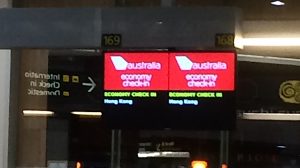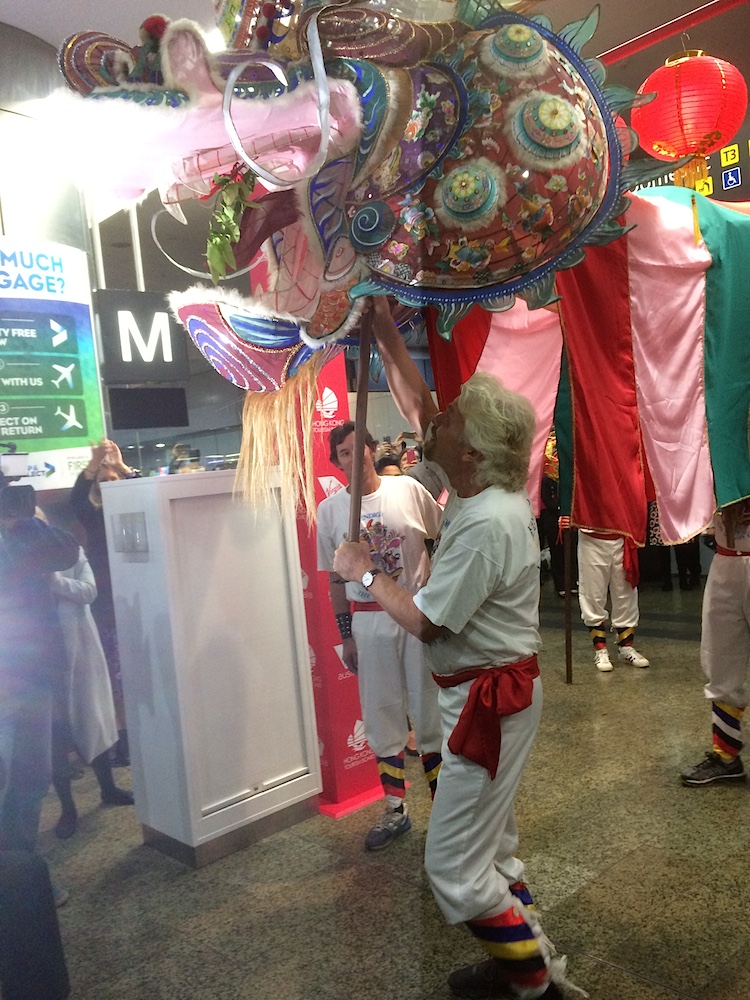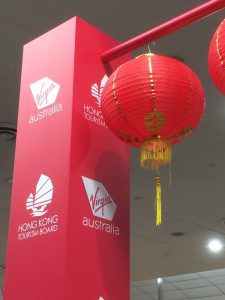
Virgin Australia flight VA87 has taken off from Melbourne bound for Hong Kong, marking the start of what chief executive John Borghetti describes as the airline’s Asian expansion.
The flight, operated by Airbus A330-200 VH-XFD, pushed back from the gate at about 0940 Wednesday morning, taking off on Runway 34 just after 1000 with Borghetti, the founder of UK-based Virgin Group Sir Richard Branson, politicians, other invited guests and paying customers on board.
Virgin joins incumbents Cathay Pacific and Qantas on the Melbourne-Hong Kong route, and with its alliance with HNA Group carrier Hong Kong Airlines will offer connections beyond Hong Kong to mainland China.

Borghetti said Virgin’s service to Hong Kong would open up a huge market for the airline.
“Within a five-hour flying range, half of the world’s population can be reached,” Borghetti told reporters at Melbourne Airport prior to the inaugural flight on Wednesday.
“It is an enormous hub and with our great partners Hong Kong Airlines who are here also, Hong Kong Express and HNA Aviation we are able to tap into an enormous market base that will frankly just improve the traffic into Melbourne significantly.”

The five times a week offering features morning departures from Melbourne on Mondays and Wednesday, while flights on Tuesday, Thursday and Saturdays will be a red-eye overnight service arriving in Hong Kong in the morning.
All five of Virgin’s Hong Kong-Melbourne services depart in the early evening, landing at Tullamarine the following morning.
Borghetti said plans to begin services to a yet-to-be-confirmed city in China are ongoing, with the focus on securing takeoff and landing slots.
“This is really the spearhead into Asia for us,” Borghetti said.
“Hong Kong-Melbourne is the first route but you know mainland China is very important for us and are trying to operate there shortly. But these are complex things.”
After arriving at the Melbourne international terminal in a 34m long dragon, Sir Richard told reporters Virgin was seeking more takeoff and landing slots at the busy Hong Kong Chek Lap Kok Airport to begin service from Brisbane and Sydney.

“We have to get slots in Hong Kong and that’s tough and that’s being worked on,” said Sir Richard, who holds no official management role at Virgin Australia and does not sit on the airline’s board.
“Obviously we’ve applied for 21 new slots in Hong Kong which will hopefully cover Sydney and most likely Brisbane as well.
“We will hope that in the next slot committee that we manage to get enough to get at least one of those two routes up and running.”
Hong Kong Tourism Board regional director Andrew Clark said the new flights from Virgin would contribute to an 8.3 per cent increase in seat numbers in the Australia-Hong Kong market in 2017.

“We are delighted to have Virgin Australia join us on the route from Melbourne to Hong Kong,” Clark told reporters.
“We certainly welcome the added capacity and obviously the added competition. We love that. We know that will be good for consumers.”
Indeed figures from Virgin indicated ticket prices from Cathay and Qantas – which dominate the Australia-Hong Kong market – on the Melbourne-Hong Kong route had fallen by a much as 34 per cent in response to the airline’s entry into the market.
UK-based Virgin Group is one of Virgin Australia’s major shareholders alongside Etihad Airways, Singapore Airlines, HNA Group and Nanshan and holds about 10 per cent of the airline’s issued capital.
Asked about the future of Virgin Group’s stake in the airline, Sir Richard said: “I love Virgin Australia, I would never, it would be one of the last things I would ever sell.”
Further, Sir Richard said he hoped the Virgin brand would be “attached to this airline for hopefully decades to come”.
And the flamboyant entrepreneur did not miss the opportunity to have a yet another dig at Virgin Australia rival Qantas, as he often does when visiting this country.
“They poured hundreds of millions of dollars into overcapacity on routes that we were flying on,” Sir Richard said of the capacity wars of previous years.
“They literally almost drove themselves out of business.
“I think it cost them more than it cost us.”




